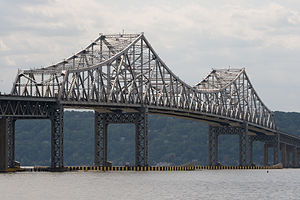1. Elegy for the Great Barrier Reef?
 There’s no denying it: “Global warming has already radically — and possibly permanently” — transformed the Great Barrier Reef, according to a new study in the journal Nature. “Rising temperatures in 2016 ‘cooked’ swathes of corals, the scientists found, causing the catastrophic die-off of almost 30 percent of the world’s largest coral reef system.” In some of the worst-affected areas, 90 percent of corals died. “It’s catastrophic,” Sarah Perkins-Kirkpatrick, a New South Wales-based climate researcher who was not involved in the new study, told Australia’s ABC News after reviewing the research. “There might have been a glimmer of hope that it wasn’t as bad or might recover faster than we thought. But this paper made the reality very present. The bleaching will forever change the Barrier Reef.”
There’s no denying it: “Global warming has already radically — and possibly permanently” — transformed the Great Barrier Reef, according to a new study in the journal Nature. “Rising temperatures in 2016 ‘cooked’ swathes of corals, the scientists found, causing the catastrophic die-off of almost 30 percent of the world’s largest coral reef system.” In some of the worst-affected areas, 90 percent of corals died. “It’s catastrophic,” Sarah Perkins-Kirkpatrick, a New South Wales-based climate researcher who was not involved in the new study, told Australia’s ABC News after reviewing the research. “There might have been a glimmer of hope that it wasn’t as bad or might recover faster than we thought. But this paper made the reality very present. The bleaching will forever change the Barrier Reef.”
---------------------------------------------------
 The latest gold rush — in the deep sea — is proceeding just as carelessly as mining on land, according to a recent article in Harvard Environmental Law Review. “Proponents argue deep-sea mining could yield far superior ore to land mining — in silver, gold, copper, manganese, cobalt and zinc — with little, if any, waste product.” Not so fast, say the authors. Deep-sea mining could have devastating effects on oceans and indigenous people. It creates large sediment plumes, discharges waste and tailings, and destroys hydrothermal vents, which are key carbon sinks. The authors argue that governments should reform international seabed rules “to reflect modern developments in law and science, and to protect potentially vulnerable communities. They should recognise the risks of operating in an unknown environment, fully embrace the precautionary approach, and protect and conserve the ocean for the benefit of current and future generations.”
The latest gold rush — in the deep sea — is proceeding just as carelessly as mining on land, according to a recent article in Harvard Environmental Law Review. “Proponents argue deep-sea mining could yield far superior ore to land mining — in silver, gold, copper, manganese, cobalt and zinc — with little, if any, waste product.” Not so fast, say the authors. Deep-sea mining could have devastating effects on oceans and indigenous people. It creates large sediment plumes, discharges waste and tailings, and destroys hydrothermal vents, which are key carbon sinks. The authors argue that governments should reform international seabed rules “to reflect modern developments in law and science, and to protect potentially vulnerable communities. They should recognise the risks of operating in an unknown environment, fully embrace the precautionary approach, and protect and conserve the ocean for the benefit of current and future generations.”
3. New Zealand Bans New Offshore Oil Exploration
 New Zealand has halted issuing new permits for oil exploration off its coast. “Prime minister Jacinda Ardern announced the move as part of the nation’s plan to transition towards a carbon-neutral future.” Greenpeace New Zealand called the announcement a “historic moment” for the country and “a huge win for our climate and people power.” Kevin Hague of the conservation group Forest & Bird adds, “Half the world’s whale and dolphin species visit or live in New Zealand waters, from the critically endangered Maui’s dolphin to giant blue whales. Today, these sensitive creatures are made safer from the threat of oil spills and the sonic barrage of seismic testing. Keeping New Zealand’s oil and gas in the ground reduces everyone’s risk, and tells the world we’re serious about reducing our contribution to climate change.”
Read More...
New Zealand has halted issuing new permits for oil exploration off its coast. “Prime minister Jacinda Ardern announced the move as part of the nation’s plan to transition towards a carbon-neutral future.” Greenpeace New Zealand called the announcement a “historic moment” for the country and “a huge win for our climate and people power.” Kevin Hague of the conservation group Forest & Bird adds, “Half the world’s whale and dolphin species visit or live in New Zealand waters, from the critically endangered Maui’s dolphin to giant blue whales. Today, these sensitive creatures are made safer from the threat of oil spills and the sonic barrage of seismic testing. Keeping New Zealand’s oil and gas in the ground reduces everyone’s risk, and tells the world we’re serious about reducing our contribution to climate change.”
Read More...
 New Zealand has halted issuing new permits for oil exploration off its coast. “Prime minister Jacinda Ardern announced the move as part of the nation’s plan to transition towards a carbon-neutral future.” Greenpeace New Zealand called the announcement a “historic moment” for the country and “a huge win for our climate and people power.” Kevin Hague of the conservation group Forest & Bird adds, “Half the world’s whale and dolphin species visit or live in New Zealand waters, from the critically endangered Maui’s dolphin to giant blue whales. Today, these sensitive creatures are made safer from the threat of oil spills and the sonic barrage of seismic testing. Keeping New Zealand’s oil and gas in the ground reduces everyone’s risk, and tells the world we’re serious about reducing our contribution to climate change.”
New Zealand has halted issuing new permits for oil exploration off its coast. “Prime minister Jacinda Ardern announced the move as part of the nation’s plan to transition towards a carbon-neutral future.” Greenpeace New Zealand called the announcement a “historic moment” for the country and “a huge win for our climate and people power.” Kevin Hague of the conservation group Forest & Bird adds, “Half the world’s whale and dolphin species visit or live in New Zealand waters, from the critically endangered Maui’s dolphin to giant blue whales. Today, these sensitive creatures are made safer from the threat of oil spills and the sonic barrage of seismic testing. Keeping New Zealand’s oil and gas in the ground reduces everyone’s risk, and tells the world we’re serious about reducing our contribution to climate change.”
---------------------------------------------------
4. Deep-Sea Trawling: All Pain, No Gain
 A new study of 65 years of deep-sea trawling fishing found that the practice “can be extremely destructive for fish populations, while providing minimal economic benefits.” The new study, published in Frontiers in Marine Science, reports that “many of these fisheries followed a 'boom and bust' pattern, with fish harvests first thriving, then quickly crashing.” “Certain deep-sea fisheries, such as the orange roughy in New Zealand, are highly valuable for a very small number of companies, in this case maybe two or three,” said co-author Les Watling, professor of biology at the University of Hawaiʻi at Mānoa. “But the environmental damage is extensive so we have to wonder whether those few companies should be allowed to benefit when the damage is so severe.”
Read More...
A new study of 65 years of deep-sea trawling fishing found that the practice “can be extremely destructive for fish populations, while providing minimal economic benefits.” The new study, published in Frontiers in Marine Science, reports that “many of these fisheries followed a 'boom and bust' pattern, with fish harvests first thriving, then quickly crashing.” “Certain deep-sea fisheries, such as the orange roughy in New Zealand, are highly valuable for a very small number of companies, in this case maybe two or three,” said co-author Les Watling, professor of biology at the University of Hawaiʻi at Mānoa. “But the environmental damage is extensive so we have to wonder whether those few companies should be allowed to benefit when the damage is so severe.”
Read More...
 A new study of 65 years of deep-sea trawling fishing found that the practice “can be extremely destructive for fish populations, while providing minimal economic benefits.” The new study, published in Frontiers in Marine Science, reports that “many of these fisheries followed a 'boom and bust' pattern, with fish harvests first thriving, then quickly crashing.” “Certain deep-sea fisheries, such as the orange roughy in New Zealand, are highly valuable for a very small number of companies, in this case maybe two or three,” said co-author Les Watling, professor of biology at the University of Hawaiʻi at Mānoa. “But the environmental damage is extensive so we have to wonder whether those few companies should be allowed to benefit when the damage is so severe.”
A new study of 65 years of deep-sea trawling fishing found that the practice “can be extremely destructive for fish populations, while providing minimal economic benefits.” The new study, published in Frontiers in Marine Science, reports that “many of these fisheries followed a 'boom and bust' pattern, with fish harvests first thriving, then quickly crashing.” “Certain deep-sea fisheries, such as the orange roughy in New Zealand, are highly valuable for a very small number of companies, in this case maybe two or three,” said co-author Les Watling, professor of biology at the University of Hawaiʻi at Mānoa. “But the environmental damage is extensive so we have to wonder whether those few companies should be allowed to benefit when the damage is so severe.”
---------------------------------------------------
5. Historic Tapan Zee Bridge Yields Six New Artificial Reefs for Long Island
 What do sunken ships, subway cars, and abandoned oil rigs have in common? They are teeming with fish in their new lives as artificial reefs. In the latest version of reef madness, New York will build six new artificial reefs off the North Shore of Long Island out of sections of the demolished Tappan Zee Bridge. Governor Andrew Cuomo calls the project New York’s largest ever expansion of artificial reefs. The reefs will provide habitat for fish and lobsters, a boon for Long Island’s recreational and sport fishing industries.
What do sunken ships, subway cars, and abandoned oil rigs have in common? They are teeming with fish in their new lives as artificial reefs. In the latest version of reef madness, New York will build six new artificial reefs off the North Shore of Long Island out of sections of the demolished Tappan Zee Bridge. Governor Andrew Cuomo calls the project New York’s largest ever expansion of artificial reefs. The reefs will provide habitat for fish and lobsters, a boon for Long Island’s recreational and sport fishing industries.
---------------------------------------------------
Be sure to "LIKE" http://facebook.com/SeaSave to ensure our "Week in Review" is delivered to your newsfeed every Friday.
Be sure to "LIKE" http://facebook.com/SeaSave to ensure our "Week in Review" is delivered to your newsfeed every Friday.
Sea Save Foundation is committed to raising awareness of marine conservation. The Week in Review is a team effort produced by the Sea Save staff to provide a weekly summary of the latest in marine research, policy, and news.